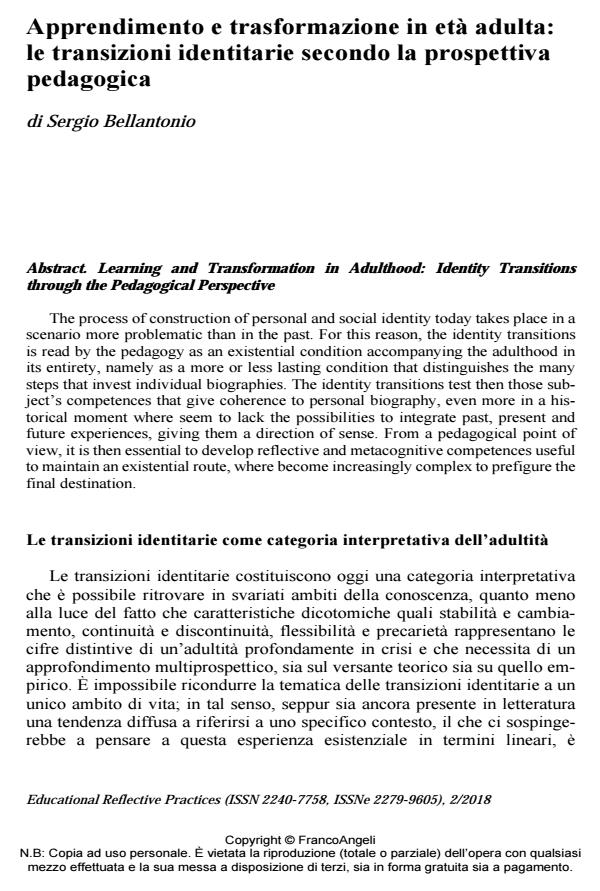Apprendimento e trasformazione in età adulta: le transizioni identitarie secondo la prospettiva pedagogica
Titolo Rivista EDUCATIONAL REFLECTIVE PRACTICES
Autori/Curatori Sergio Bellantonio
Anno di pubblicazione 2019 Fascicolo 2018/2
Lingua Italiano Numero pagine 13 P. 66-78 Dimensione file 161 KB
DOI 10.3280/ERP2018-002005
Il DOI è il codice a barre della proprietà intellettuale: per saperne di più
clicca qui
Qui sotto puoi vedere in anteprima la prima pagina di questo articolo.
Se questo articolo ti interessa, lo puoi acquistare (e scaricare in formato pdf) seguendo le facili indicazioni per acquistare il download credit. Acquista Download Credits per scaricare questo Articolo in formato PDF

FrancoAngeli è membro della Publishers International Linking Association, Inc (PILA), associazione indipendente e non profit per facilitare (attraverso i servizi tecnologici implementati da CrossRef.org) l’accesso degli studiosi ai contenuti digitali nelle pubblicazioni professionali e scientifiche.
The process of construction of personal and social identity today takes place in a scenario more problematic than in the past. For this reason, the identity transi-tions is read by the pedagogy as an existential condition accompanying the adult-hood in its entirety, namely as a more or less lasting condition that distinguishes the many steps that invest individual biographies. The identity transitions test then those subject’s competences that give coherence to personal biography, even more in a historical moment where seem to lack the possibilities to integrate past, present and future experiences, giving them a direction of sense. From a pedagogical point of view, it is then essential to develop reflective and metacognitive competences useful to maintain an existential route, where become increasingly complex to pre-figure the final destination.
Sergio Bellantonio, Apprendimento e trasformazione in età adulta: le transizioni identitarie secondo la prospettiva pedagogica in "EDUCATIONAL REFLECTIVE PRACTICES" 2/2018, pp 66-78, DOI: 10.3280/ERP2018-002005